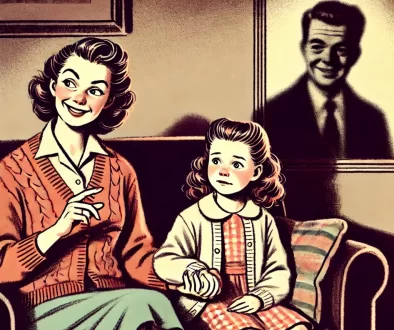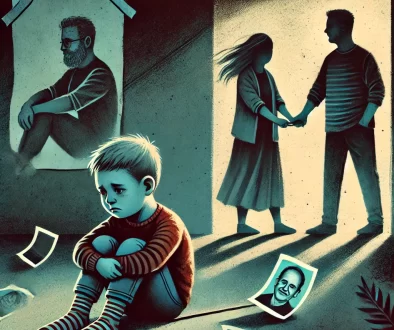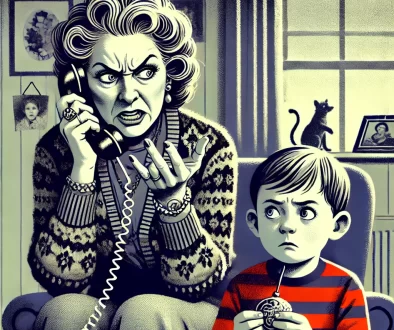Gender Bias in Family Court: Why Fathers Face Disadvantages Simply for Being Men
Family court systems were established to protect the best interests of children, but for many fathers, the experience often feels unfairly biased. Despite progress in gender equality, courts frequently operate on traditional stereotypes that portray mothers as the primary caregivers and fathers as secondary figures in a child’s life. These biases, rooted in outdated societal norms, can leave fathers at a significant disadvantage from the moment they walk into the courtroom.
This article explores the systemic challenges fathers face in family court, supported by statistics and research, and highlights the need for reform to ensure fairness for all parents.
The Roots of Gender Bias in Family Court
The traditional view of family dynamics, where mothers are caregivers and fathers are breadwinners, has shaped family court systems for decades. While societal roles have evolved, these outdated assumptions continue to influence custody decisions. Common stereotypes include:
- Mothers as Nurturers: Mothers are often seen as naturally better suited to care for children, leading courts to favor maternal custody.
- Fathers as Providers: Fathers are frequently viewed as less involved in child-rearing, despite evidence to the contrary.
- The “Tender Years Doctrine”: Although no longer officially recognized in many jurisdictions, this doctrine historically presumed that young children should stay with their mothers, a mindset that still lingers in judicial decision-making.
Statistics Highlighting Gender Disparity
Research consistently shows that fathers are less likely to receive favorable outcomes in family court:
- Custody Decisions:
- Mothers are awarded primary custody in approximately 79% of cases, according to a 2018 U.S. Census Bureau report.
- Fathers receive primary custody in only 7% of cases, with joint custody accounting for the remaining percentage.
- Child Support Orders:
- Fathers are disproportionately ordered to pay child support. In 2020, the U.S. Census Bureau reported that 91% of custodial parents receiving child support were mothers, while only 9% were fathers.
- Parental Alienation Cases:
- A 2019 survey published in the Journal of Divorce & Remarriage found that fathers are more likely to report being victims of parental alienation, with limited legal recourse to counteract these behaviors.
- Bias Perception:
- A 2021 survey by the National Parents Organization found that 85% of fathers felt the family court system was biased against them, while 56% of mothers believed fathers faced unfair treatment in custody disputes.
Challenges Fathers Face in Family Court
1. Presumption of Primary Caregiving by Mothers
Despite modern parenting trends where fathers are increasingly involved, courts often default to awarding custody to mothers. Fathers must present substantial evidence to prove they are equally capable caregivers, while mothers are typically not held to the same standard.
2. Financial Disadvantages
Fathers frequently bear the financial burden of child support, even in cases of joint custody, where caregiving responsibilities are shared. Courts often assume fathers can afford these payments without considering the impact on their ability to maintain a stable home for the child.
3. Difficulty Proving Parental Alienation
When mothers engage in parental alienation tactics—manipulating the child to reject the father—courts are often reluctant to intervene. Fathers may struggle to present sufficient evidence to counter false allegations or regain meaningful access to their child.
4. Lack of Advocacy and Representation
While many organizations advocate for maternal rights, fewer resources exist to support fathers navigating family court. This disparity leaves fathers at a disadvantage when seeking fair representation.
Impact on Fathers and Children
The biases fathers face in family court can have devastating consequences:
- For Fathers:
- Emotional toll: Many fathers report feelings of helplessness, depression, and alienation from their children.
- Financial strain: High child support obligations can lead to economic instability, making it harder for fathers to provide for their children during visitations.
- For Children:
- Loss of paternal bond: Research shows that children benefit from strong relationships with both parents. Bias against fathers deprives children of meaningful contact and emotional support from their fathers.
- Increased loyalty conflicts: When one parent is favored over the other, children may experience confusion and guilt, impacting their mental health.
Examples of Gender Bias in Action
- Custody Battles: Courts often award primary custody to mothers based on subjective evaluations rather than objective evidence. Fathers who work full-time may be unfairly penalized for their employment, while mothers’ caregiving is seen as a natural advantage.
- False Allegations: Fathers are disproportionately affected by false accusations of abuse or neglect. These allegations are sometimes used strategically to gain custody advantages, and proving innocence can take months or years, further straining the father-child relationship.
- Child Support Enforcement: Fathers who fall behind on child support payments due to financial hardships face severe penalties, including wage garnishment, license suspension, or even jail time. These punitive measures rarely consider the father’s ability to pay or the broader impact on the child.
Steps Toward Reform
To address gender bias in family court, systemic changes are needed:
- Promote Shared Parenting Laws: States like Kentucky and Arizona have introduced legislation favoring joint custody as the default arrangement in divorce cases. Expanding such laws nationwide could help eliminate bias.
- Educate Judges and Attorneys: Training family court professionals to recognize and address implicit gender biases can lead to fairer custody decisions.
- Increase Resources for Fathers: Establishing more organizations and support networks for fathers can help them navigate family court and advocate for their rights.
- Enforce Accountability for False Allegations: Introducing stricter penalties for false accusations in custody battles can deter manipulative tactics and ensure a more level playing field.
Conclusion
Family court systems are meant to prioritize the best interests of the child, but gender biases against fathers continue to undermine this goal. Fathers face an uphill battle simply for being men, and the consequences extend beyond the courtroom to the emotional and financial well-being of both parents and children. By addressing these systemic inequities, society can move closer to a truly fair and equitable approach to family law—one that values the vital roles both mothers and fathers play in their children’s lives.
I’m Randy Morano—a father, author, and staunch advocate for parental alienation awareness. My journey through the depths of parental alienation has transformed me into a passionate advocate, dedicated to shedding light on this overlooked form of emotional abuse.
As a survivor, I understand the profound impact of parental alienation firsthand. Through my writing and advocacy efforts, I aim to raise awareness, empower others, and provide support to families in need. Join me in the fight for change and hope.



